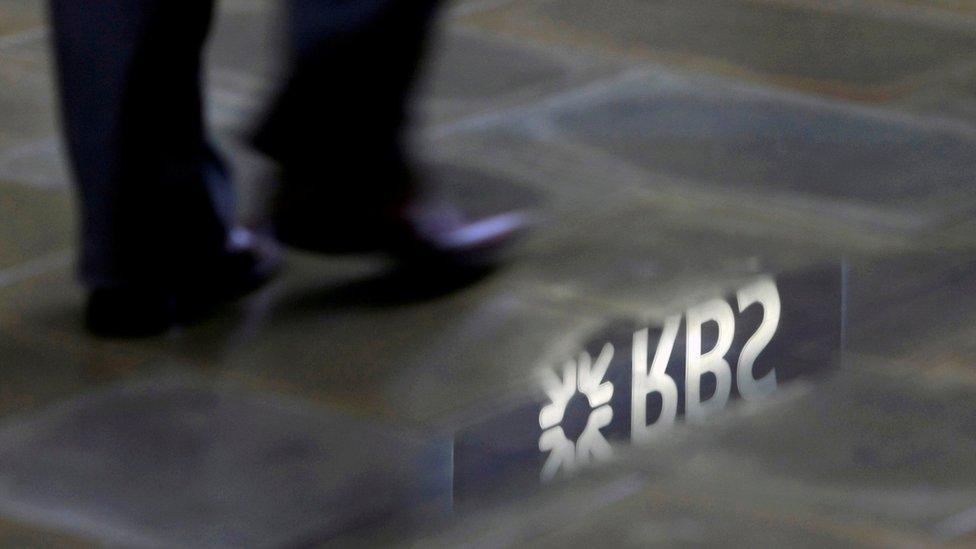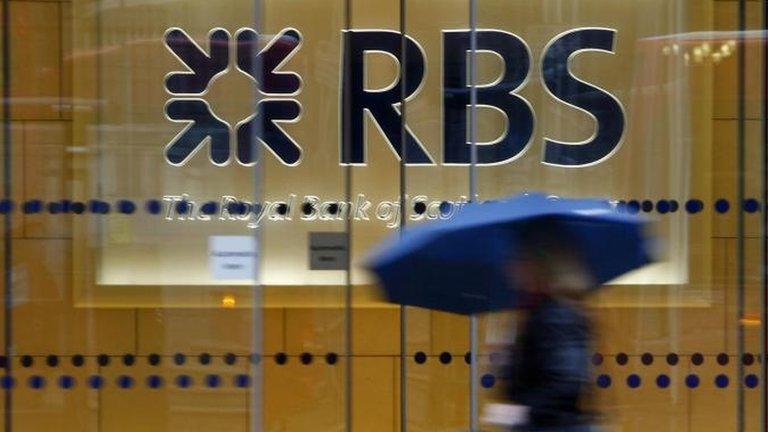RBS stake may be sold at a loss, chancellor admits
- Published
- comments

The chancellor has admitted for the first time that the government is prepared to sell its stake in Royal Bank of Scotland (RBS) at a loss.
The Treasury bailed out the bank by buying a 72% stake for £45bn, at 502p a share, at the height of the financial crisis in 2008.
Shares in the loss-making lender are now trading at less than half that price at 223p.
Philip Hammond told MPs on Tuesday: "We have to live in the real world."
He added: "Our policy remains to return the bank to private hands as soon as we can achieve fair value for the shares, recognising that fair value could well be below what the previous government paid for them.
"We have to live in the real world and make decisions on the future of our holding in RBS in the best interests of taxpayers."
'Real progress'
Mr Hammond has previously said the government did not expect to offload its stake in RBS until after 2020.
He added: "We are making real progress in realising our holdings in the banking sector.
"We continue the programme sale of our shareholding in Lloyds, which is now down from 43% to less than 2%, and just last month we sold £12bn worth of Bradford & Bingley mortgages in a highly competitive process."
Simon Jack: Why is RBS still losing money?
It is understood that the Treasury will only start to sell its shares in RBS when "legacy" issues have been resolved.
Ninth consecutive loss
Those issues include a potentially huge fine by the US Department of Justice, which is pursuing the bank over the sale of mortgage-backed securities before the financial crisis.
In February, RBS posted its ninth consecutive annual loss, with much of the £7bn accounted for by setting aside £5.9bn for fines and legal costs.
The bank has racked up losses of more than £50bn since the government bailout.
Chief executive Ross McEwan said in Feburary he expected RBS to return to profit by the end of 2018.
When one-off charges were stripped out, the core business of the bank was making money, he added.
The European Commission is examining government proposals that aim to spare RBS from being forced to sell off the Williams & Glyn branch network.

Analysis: Simon Jack, BBC business editor
Yesterday was an opportunity to bury bad news. The election news pretty much guaranteed everyone would take their eyes off any other ball in play. Some will see Philip Hammond's statement that he is prepared to sell the government's stake in RBS at a loss as a good example of bad news buried - except that for many watchers it really isn't bad news.
The Chancellor speaks for most financially savvy analysts when he says that the government has "got to live in the real world" and accept that it won't be able to sell the stake for the same price as the last government bought it.
It would be nice to sell at a profit but that misunderstands the nature of the government's purchase. This wasn't an investment - it was a rescue.
The large government stake is contributing to RBS's share price weakness. No one wants to buy shares when you know that there is a massive seller waiting to offload three quarters of all the shares.
George Osborne understood this and sold down a stake at a loss in the last parliament and would have continued had it not been for the eurozone crisis sending shares crashing to REALLY unpalatable levels and the emergence of new political priorities like the EU referendum.
There will be no sale until RBS settles its monster fine with the US authorities for its part in the subprime scandal and it gets approval for its plan to pay £750m to hang on to the seemingly unsellable Williams and Glynn but once those are out the way - expect the government to start selling its RBS shares in chunks at a loss - at least at first.
Most experts would agree that for RBS ever to be a normal bank again, the medicine may taste unpleasant but it's worth taking.

- Published24 February 2017

- Published24 February 2017